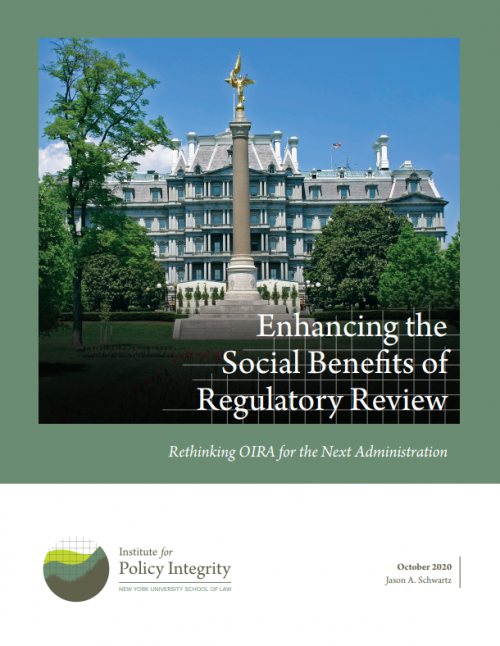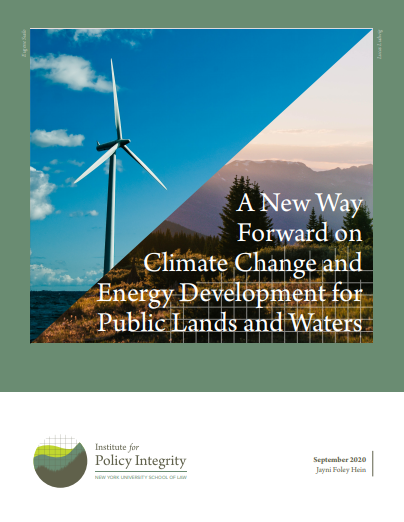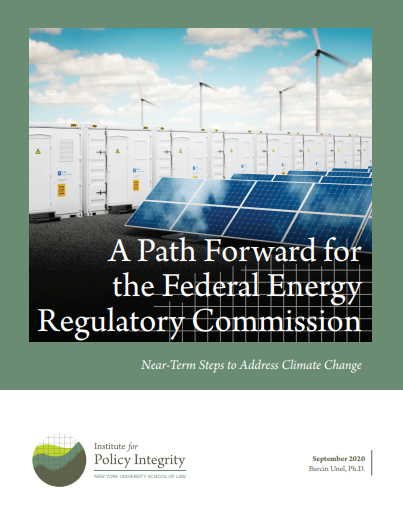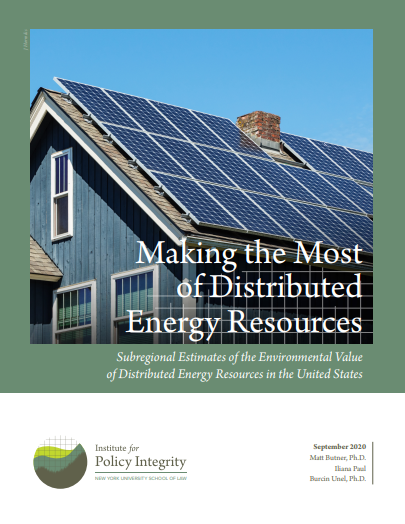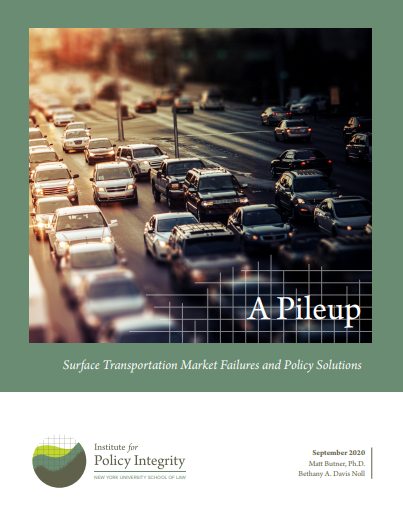The Institute for Policy Integrity produces a variety of publications. Our research reports develop in-depth research on our core issues, while our policy briefs and issue briefs provide focused analysis on more timely or particular topics. Our academic articles and working papers offer original scholarly research and analysis from established experts as well as fresh new voices.
Latest Publications
-
Enhancing the Social Benefits of Regulatory Review
Rethinking OIRA for the Next Administration
In recent years, federal leadership has distorted the practice of regulatory analysis and has eroded the integrity of the government’s regulatory review structure as coordinated by the Office of Information and Regulatory Affairs (OIRA). The result has been a torrent of deregulatory actions that have worked against the best interests of the American people and their health, safety, environment, and financial well-being. Our report details the path forward on regulatory review, which is to first surgically excise recent distortions, and then to reaffirm the best principles and practices from the past, while adding key corrections and enhancements. Implementing the reforms recommended in this report will refocus OIRA on helping agencies once again use regulations to maximize net social welfare.
-
A New Way Forward on Climate Change and Energy Development for Public Lands and Waters
The Department of the Interior has yet to develop a comprehensive plan to accurately account for, manage, and mitigate the greenhouse gas emissions that result from the extraction and combustion of fossil fuels from public lands and waters. This document describes immediate and longer-term actions that Interior’s Bureau of Land Management and Bureau of Ocean Energy Management should take to reform public lands management consistent with climate change, conservation, and fiscal reform priorities.
-
A Path Forward for the Federal Energy Regulatory Commission
Near-Term Steps to Address Climate Change
The Federal Energy Regulatory Commission should take an active role in better aligning regulatory practices with climate policies, speeding up development of necessary transmission infrastructure, and reforming energy market rules. This report details the specific policy reforms that federal policymakers should pursue to take advantage of important opportunities energy markets can provide to combat climate change while ensuring an economically efficient and speedy clean energy transition.
-
Making the Most of Distributed Energy Resources
Subregional Estimates of the Environmental Value of Distributed Energy Resources in the United States
This report provides a new set of hourly E-Values for the whole United States, broken down into 19 subregions, using an open-source reduced-order dispatch model. The patterns uncovered by these estimates can help policymakers design economically efficient DER policies to reduce air pollution from electricity generators.
-
A Pileup
Surface Transportation Market Failures and Policy Solutions
Surface transportation market failures, including greenhouse gas emissions, local air pollution, traffic congestion, and traffic collisions, generate billions of dollars in economic harm every year. Guided by economic principles, this report outlines several options for reforming U.S. surface transportation that account for technological, institutional, and political realities. It also highlights the unequal burden of market failures in the transportation sector and discusses policy solutions that can help lead to more just outcomes.

